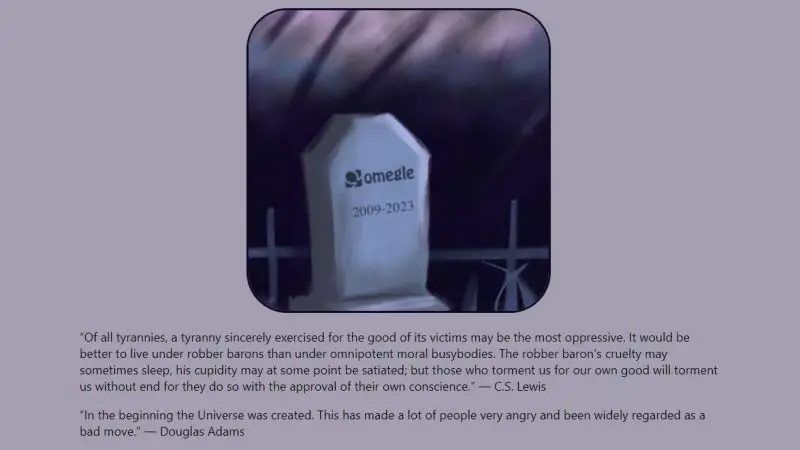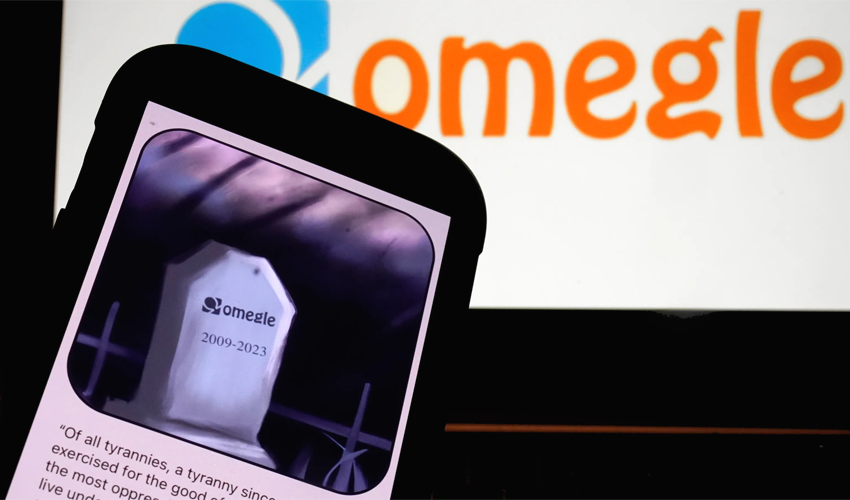Omegle, the widely-used website connecting random users through video chat, has officially closed down after its founder, Leif K-Brooks, acknowledged the platform's association with criminal activities, particularly concerns related to paedophilia and child abuse.
K-Brooks, who established Omegle in 2009 at 18, posted a letter on the site's home page, expressing his attempts to create a community combating loneliness.
However, the prevalence of crimes and misuse made the platform "no longer sustainable, financially nor psychologically."

While K-Brooks did not explicitly mention paedophilia issues, he acknowledged the need to address criticisms. He stated that the only way to satisfy critics was to cease offering the service.
The demise of Omegle highlights the ongoing challenge for tech companies, struggling to address criminal activities on their platforms with limited resources.
The platform faced accusations of enabling anonymous messaging and coercion, especially for abusers seeking to connect with children.
The simplicity of Omegle, lacking user verification like email or phone numbers, posed a challenge for law enforcement. The platform's refusal to collect identifying information hindered investigations into criminal activities.
Despite implementing improvements, including human moderators, Omegle faced lawsuits accusing the company of evading responsibility.



























